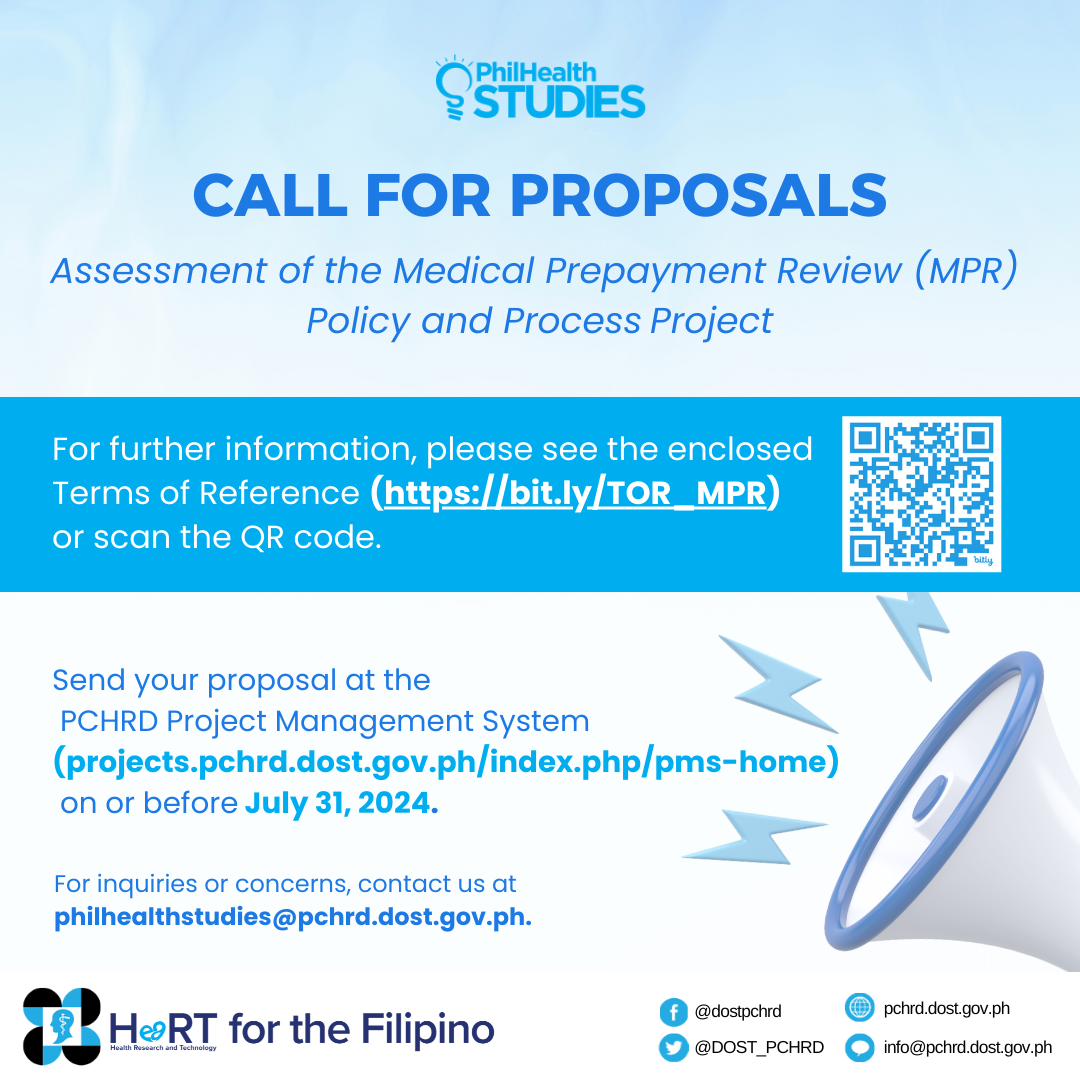CALLS AND EVENTS
Call for Proposals: Assessment of the Medical Prepayment Review (MPR) Policy and Process Project

The Call for Proposal for the “Assessment of the Medical Prepayment Review (MPR) Policy and Process” project is NOW OPEN.
Interested proponents may now submit their proposal through the PCHRD Project Management System (https://projects.pchrd.dost.gov.ph/index.php/pms-home) on or before July 31, 2024.
Background & Rationale
PhilHealth, as the administrator of the National Health Insurance Program (NHIP), is mandated to ensure that quality health services are provided to its beneficiaries. The Corporation may set standards, rules and regulations that will ensure quality of care, appropriate utilization of services, fund viability, member satisfaction and overall accomplishment of Program objectives. It is also incumbent to the Corporation to protect the Program and set safe guards to ensure that reimbursement of services is correct, appropriate, and ethical. One strategy is the conduct of medical prepayment review (MPR).
MPR is defined as the process of review and evaluation of clinical data prior to payment of claims in order to determine if the illness or condition being claimed is valid (i.e., admissible case, compliance to standards of care) based on applicable Corporate quality policies. Thus, MPR is a form of gate keeping. MPR was implemented in accordance to PhilHealth Circulars Nos. 2018-0007, 2018-0014 and 2019-0002.
Currently, there are four (4) conditions covered with specific MPR tools namely: community-pneumonia (CAP) in adult, uncomplicated urinary tract infection (UTI), acute gastroenteritis (AGE) and adult sepsis. These conditions were subjected for medical review due to high claims’ utilization and suspicion of possible fraud (i.e., inadmissible cases, upcasing). However, it is noteworthy to mention that fraud cannot be immediately determined by MPR process alone.
Further, the medical evaluator (ME) can subject any condition outside the four aforementioned illnesses, when deemed necessary. Once tagged, the claims of the concerned health care provider shall be reviewed using the standard MPR tool.
In the medical evaluation of claims, the assigned medical evaluator reviews the clinical information contained in the Claim Form (CF) 4. Other pertinent documents maybe requested as necessary.
This study, therefore, intends to conduct an assessment of the MPR Policy and its processes to evaluate its effectiveness, relevance, efficacy, and acceptability based on the results derived from its implementation.
———————————————
For more information, please see the enclosed Terms of Reference at https://bit.ly/TOR_MPR.
Should you have further inquiries or concerns, you may contact us through philhealthstudies@pchrd.dost.gov.ph.




